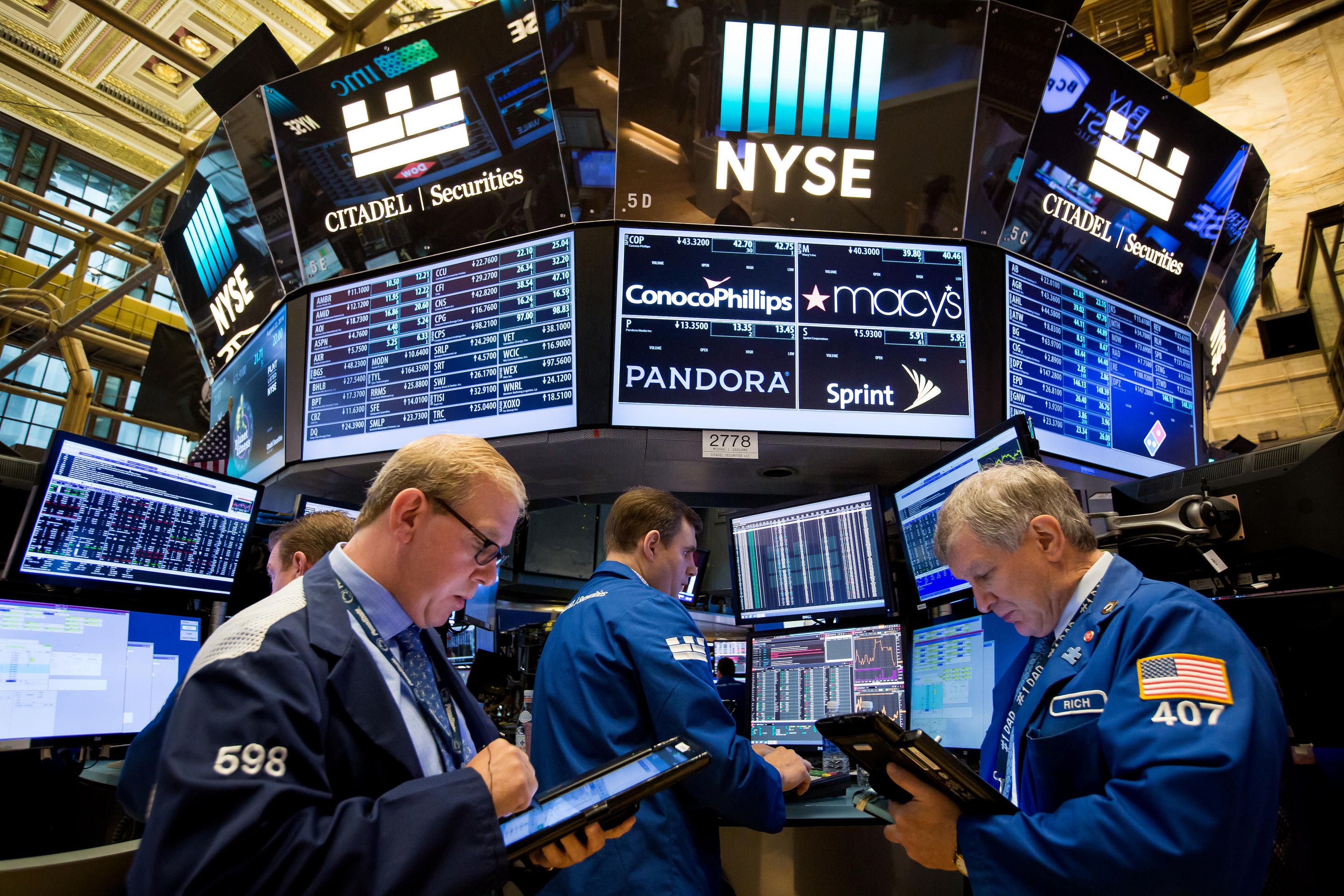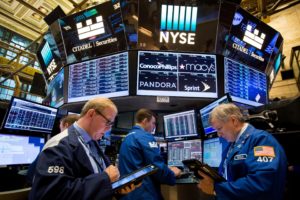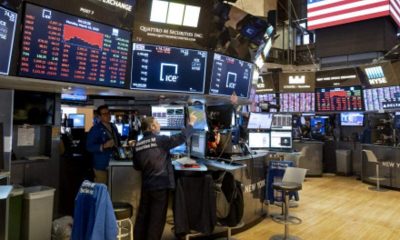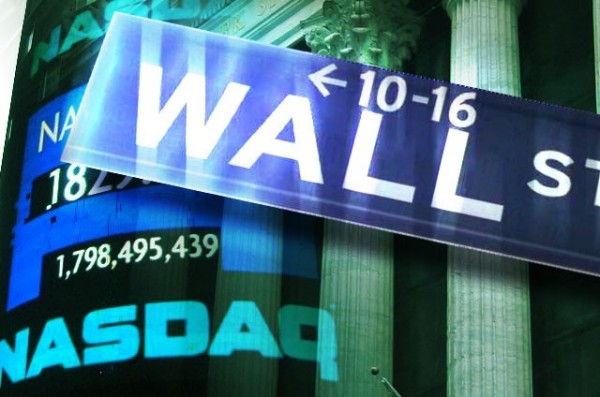Economy
US Stocks May Lack Direction Ahead of Yellen Testimony


By Investors Hub
Major U.S. index futures are pointing to a mixed opening on Monday, with the Dow futures up by down by 28 points and the Nasdaq futures up by 4.5 points.
Traders may be reluctant to make any significant moves ahead of Federal Reserve Chair Janet Yellen’s semiannual testimony before Congress.
Yellen is due to testify before the House Financial Services Committee on Wednesday and before the Senate Banking Committee on Thursday.
The comments from the Fed Chief could have a significant impact on the outlook for interest rates ahead of the central bank’s monetary policy meeting later this month.
After showing a significant move to the downside last Thursday, stocks regained some ground during trading on Friday. The Nasdaq and the S&P 500 rebounded after ending Thursday’s trading at their lowest closing levels in over a month.
The major averages finished the day firmly in positive territory. The Dow climbed 94.30 points or 0.4 percent to 21,414.34, the Nasdaq jumped 63.61 points or 0.1 percent to 6,153.08 and the S&P 500 advanced 15.43 points or 0.6 percent to 2,425.18.
For the holiday-interrupted week, the major averages moved modestly higher. While the Dow rose by 0.3 percent, the Nasdaq edged up by 0.2 percent and the S&P 500 inched up by 0.1 percent.
The rebound on Wall Street came following the release of a report from the Labor Department showing much stronger than expected job growth in the month of June.
The report said non-farm payroll employment jumped by 222,000 jobs in June following an upwardly revised increase of 152,000 jobs in May.
Economists had expected employment to climb by 179,000 jobs compared to the addition of 138,000 jobs originally reported for the previous month.
Despite the stronger than expected job growth, the unemployment rate inched up to 4.4 percent in June from 4.3 percent in May. Economists had expected the unemployment rate to hold steady.
The Labor Department also said average hourly employee earnings rose by 0.2 percent to $26.25. Average hourly earnings in June were up by 2.5 percent year-over-year.
“This was a strong jobs report, with a better-than-expected payroll rise augmented by a solid upward revision,” said Chris Low, chief economist at FTN Financial.
He added, “Still, it should not add to the already considerable fire under the FOMC because wage pressures are nowhere to be seen, and labor slack relaxed unexpectedly.”
The Federal Reserve is scheduled to make its next decision on interest rates following a two-day meeting later this month.
Traders also kept an eye on developments out of the G20 summit in Hamburg, Germany, where President Donald Trump held his first face-to-face meeting with Russian President Vladimir Putin.
Secretary of State Rex Tillerson told reporters Trump and Putin had a “very robust and lengthy exchange” about alleged Russian meddling in last year’s presidential election.
Tillerson said Trump and Putin also reached an agreement on a ceasefire in Syria, which he called the first indication the countries can work together to curb the violence in the war-torn country.
Airline stocks moved sharply higher over the course of the trading session, driving the NYSE Arca Airline Index up by 2.6 percent. With the jump, the index reached its best closing level in over fifteen years.
SkyWest (SKYW), Ryanair (RYAAY) and Alaska Air (ALK) turned in some of the sector’s best performances in late-day trading.
Considerable strength was also visible among semiconductor stocks, as reflected by the 1.7 gain posted by the Philadelphia Semiconductor Index. The index climbed further off the nearly two-month closing low set on Monday.
Networking also turned in a strong performance, resulting in a 1.4 percent advance by the NYSE Arca Networking Index. The gain by the index came after it ended the previous session at its lowest closing level in over a month.
Internet, housing, and software stocks also saw notable strength on the day, while gold stocks came under pressure amid a slump by the price of the precious metal.
Economy
Nigeria’s Economy Expands 4.07% in Q4 2025

By Adedapo Adesanya
Nigeria’s economy, measured by gross domestic product (GDP), grew by 4.07 per cent (year-on-year) in real terms in the fourth quarter (Q4) of 2025.
The National Bureau of Statistics (NBS) announced the development in its latest GDP report for Q4 2025 on Friday.
The latest figure represents an improvement over the 3.76 per cent growth recorded in the corresponding period of 2024, signalling sustained recovery across key sectors of the economy. The growth rate was faster than the third quarter’s 3.98 per cent.
The report confirmed that Nigeria’s oil sector grew 6.79 per cent year-on-year and the non-oil part of the economy expanded by 3.99 per cent.
Nigeria’s average daily oil production stood at 1.58 million barrels per day in the final three months of 2025. That was lower than the third quarter’s output of 1.64 million barrels per day but higher than the 1.54 million barrels per day in the fourth quarter of 2024.
Breakdown of the data showed that the agriculture sector grew by 4.00 per cent in the fourth quarter of 2025. This marks a significant increase compared to the 2.54 per cent growth recorded in the same quarter of 2024, reflecting improved output and resilience in the sector.
The industry sector also recorded a stronger performance during the period under review. It grew by 3.88 per cent year-on-year, up from 2.49 per cent posted in the fourth quarter of 2024. The improvement suggests enhanced activity in manufacturing, construction, and related industrial sub-sectors.
The services sector maintained its position as a major growth driver, expanding by 4.15 per cent in Q4 2025. However, this was slightly lower than the 4.75 per cent growth recorded in the corresponding quarter of the previous year.
Overall, the 4.07 per cent GDP growth in the final quarter of 2025 underscores broad-based expansion across agriculture, industry, and services, despite a marginal moderation in services growth.
The Q4 performance provides further evidence of strengthening economic momentum, with improvements recorded in both agriculture and industry compared to the previous year.
Economy
Flour Mills Supports 2026 Paris International Agricultural Show

By Modupe Gbadeyanka
For the second time, Flour Mills of Nigeria Plc is sponsoring the Paris International Agricultural Show (PIAS) as part of its strategies to fortify its ties with France.
The 2026 PIAS kicked off on February 21 and will end on March 1, with about 607,503 visitors, nearly 4,000 animals, and over 1,000 exhibitors in attendance last year, and this year’s programme has already shown signs of being bigger and better.
The theme for this year’s event is Generations Solution. It is to foster knowledge transfer from younger generations and structure processes through which knowledge can be harnessed to drive technological advancement within the global agricultural sector.
In his address on the inaugural day of the Nigerian Pavilion on February 23, the Managing Director for FMN Agro and Director of Strategic Engagement/Stakeholder Relations, Mr Sadiq Usman, said, “At FMN, our mission is Feeding and Enriching Lives Every Day.
“This is a mandate we have fulfilled through decades of economic shifts, rooted in a culture of deep resilience and constant innovation. We support this pavilion because FMN recognises that the next frontier of global Agribusiness lies in high-level technical exchange.
“We thank the France-Nigeria Business Council (FNBC), the organisers of the PIAS, and our fellow members of the Nigerian Pavilion – Dangote, BUA, Zenith, Access, and our partners at Creativo El Matador and Soilless Farm Lab— we are exceedingly pleased to work to showcase the true face of Nigerian commerce.”
Speaking on the invaluable nature of the relationship between Nigeria and France, and the FMN’s commitment to process and product innovation, Mr John G. Coumantaros, stated, “The France – Nigeria relationship is a valuable partnership built on a shared value agenda that fosters remarkable Intercontinental trade growth.
“Also, as an organisation with over six decades of transformational footprint in Nigeria and progressively across the African Continent, FMN has been unwaveringly committed to product and process innovation.
“Therefore, our continuous partnership with France for the success of the Paris International Agricultural Show further buttresses the thriving relationship between both countries.”
PIAS is one of the most widely attended agricultural shows, with thousands of people from across the world in attendance.
Economy
NEITI Backs Tinubu’s Executive Order 9 on Oil Revenue Remittances

By Adedapo Adesanya
Despite reservations from some quarters, the Nigeria Extractive Industries Transparency Initiative (NEITI) has praised President Bola Tinubu’s Executive Order 9, which mandates direct remittances of all government revenues from tax oil, profit oil, profit gas, and royalty oil under Production Sharing Contracts, profit sharing, and risk service contracts straight to the Federation Account.
Issued on February 13, 2026, the order aims to safeguard oil and gas revenues, curb wasteful spending, and eliminate leakages by requiring operators to pay all entitlements directly into the federation account.
NEITI executive secretary, Musa Sarkin Adar, called it “a bold step in ongoing fiscal reforms to improve financial transparency, strengthen accountability, and mobilise resources for citizens’ development,” noting that the directive aligns with Section 162 of Nigeria’s Constitution.
He noted that for 20 years, NEITI has pushed for all government revenues to flow into the Federation Account transparently, calling the move a win.
For instance, in its 2017 report titled Unremitted Funds, Economic Recovery and Oil Sector Reform, NEITI revealed that over $20 billion in due remittances had not reached the government, fueling fiscal woes and prompting high-level reforms.
Mr Adar described the order as a key milestone in Nigeria’s EITI implementation and urged amendments to align it with these reforms.
He affirmed NEITI’s role in the Petroleum Industry Act (PIA) and pledged close collaboration with stakeholders, anti-corruption bodies, and partners to sustain transparent management of Nigeria’s mineral resources.
Meanwhile, others like the Petroleum and Natural Gas Senior Staff Association of Nigeria (PENGASSAN) have kicked against the order, saying it poses a serious threat to the stability of the oil and gas industry, calling it a “direct attack” on the PIA.
Speaking at the union’s National Executive Council (NEC) meeting in Abuja on Tuesday, PENGASSAN President, Mr Festus Osifo, said provisions of the order, particularly the directive to remit 30 per cent of profit oil from Production Sharing Contracts (PSCs) directly to the Federation Account, could destabilise operations at the Nigerian National Petroleum Company (NNPC) Limited.
Mr Osifo firmly dispelled rumours of imminent protests by the union, despite widespread claims that the controversial executive order threatens the livelihoods of 10,000 senior staff workers at NNPC.
He noted, however, that the union had begun engagements with government officials, including the Presidential Implementation Committee, and expressed optimism that common ground would be reached.
Mr Osifo, who also serves as President of the Trade Union Congress (TUC), expressed concerns that diverting the 30 per cent profit oil allocation to the Federation Account Allocation Committee (FAAC), without clearly defining how the statutory management fee would be refunded to NNPC, could affect the salaries of hundreds of PENGASSAN members.
-

 Feature/OPED6 years ago
Feature/OPED6 years agoDavos was Different this year
-
Travel/Tourism10 years ago
Lagos Seals Western Lodge Hotel In Ikorodu
-

 Showbiz3 years ago
Showbiz3 years agoEstranged Lover Releases Videos of Empress Njamah Bathing
-

 Banking8 years ago
Banking8 years agoSort Codes of GTBank Branches in Nigeria
-

 Economy3 years ago
Economy3 years agoSubsidy Removal: CNG at N130 Per Litre Cheaper Than Petrol—IPMAN
-

 Banking3 years ago
Banking3 years agoSort Codes of UBA Branches in Nigeria
-

 Banking3 years ago
Banking3 years agoFirst Bank Announces Planned Downtime
-

 Sports3 years ago
Sports3 years agoHighest Paid Nigerian Footballer – How Much Do Nigerian Footballers Earn















